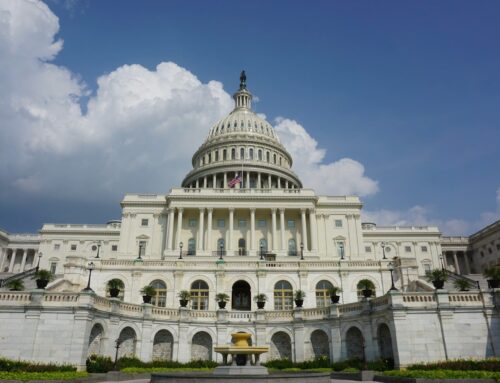As one of his last acts, Speaker Boehner swung a deal to set the budget levels for the current and next fiscal year. It has some gimmicky offsets, tweaks the major entitlement programs, and tells the Executive Branch they can ignore the debt limit until March of 2017. The deal is expected to be signed by the President before the Department of Treasury exhausts their tricks and hits the debt ceiling. But remember, the legislative work on fiscal year 2016 isn’t done. This deal just sets the budget levels. They still have to write the actual spending bills before December 11, when the current continuing resolution funding government at last year’s levels expires.
A funny thing about this deal is that the budget levels were already set for fiscal year 2016 – and every year through 2021 – policymakers just didn’t like them. So all the wrangling was about boosting 
To make room for this extra spending they came up with some gimmicky offsets. Sell millions of barrels of oil from the Strategic Petroleum Reserve (SPR), likely for much less than we bought it, change the amount companies contribute to their pensions, increasing near-term revenues (while increasing long term costs), and sell spectrum starting in 2024 – the last year of the budget window.
Some adjustments were made to Social Security and Medicare. The disability insurance portion of Social Security is likely to come up short starting next year, leading to payment cuts. Some of the revenue from the other portion (Old Age and Survivor) was shifted over to cover the shortfall through 2022. But they also added some anti-fraud measures to the program to reduce costs. Some Medicare recipients were facing steep increases in premiums next year – that was smoothed out over time and the cost was made up by a small surcharge. These are all small ball changes in the entitlement programs that could yield future dividends if this was a trust building exercise.
One of the few things we liked in the recent budget deal was that it required the U.S. Department of Agriculture to renegotiate their agreement with crop insurance companies in order to reap savings for taxpayers. This effectively undid restrictions the Agriculture Committees put in the 2014 Farm Bill to block any savings from being realized. CBO predicted this provision would save $3.5 billion. Not a lot in the overall context, but it was something. “Was” being the operative word, because Ag barons are boasting that they got promises to get rid of the pro-taxpayer provision in the upcoming Omnibus spending bill. Oh joy.
The fact is, the last time the Standard Reinsurance Agreement (SRA) was renegotiated taxpayers reaped $6 billion in savings. It’s time to see if there is more there because the Ag committees have failed to fulfill their promises of deficit reduction. They claimed passing their nearly trillion dollar farm bill in 2014 would save $23 billion against what was predicted to happen without a bill. Not true. The last Congressional Budget Office score found that the savings would only be $16.6 billion (the committees like to take credit for $5 billion from across-the-board cuts that hit every committee. Cuts they fought tooth and nail to try and stop). Measure reality to predictions and that estimate already comes up short. Recent data reveals $5 billion in cost overruns in programs sending checks to farmers. And the outrageous new programs to cover farmers who experience “shallow losses” are cutting deep, costing $3 billion more than predicted in just their first year. Ag leaders owe taxpayers these savings.
We’ll be watching the development of the Omnibus spending bill closely. It would be beyond the pale to claim savings to make the current deal budget neutral and then turn around a few weeks later and give away some of those savings in a spending bill. We’re sure they will come up with some purported offset (more oil from the SPR anyone?), but we can’t afford gimmicks. Not only is renegotiating the SRA an offset, it is good policy.











Get Social